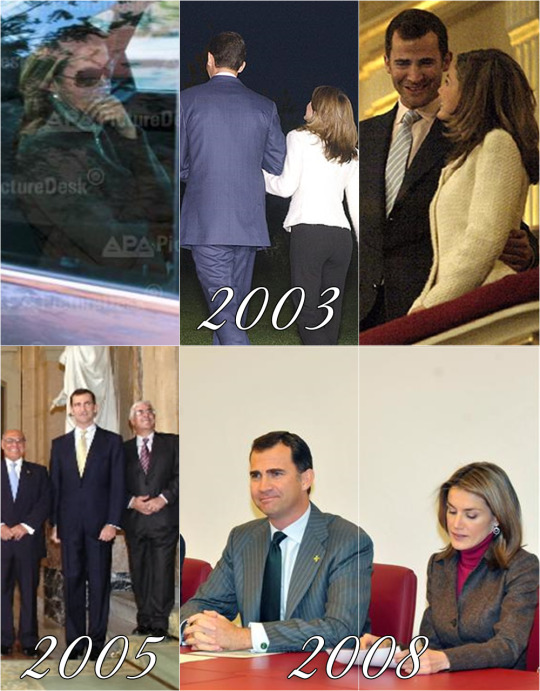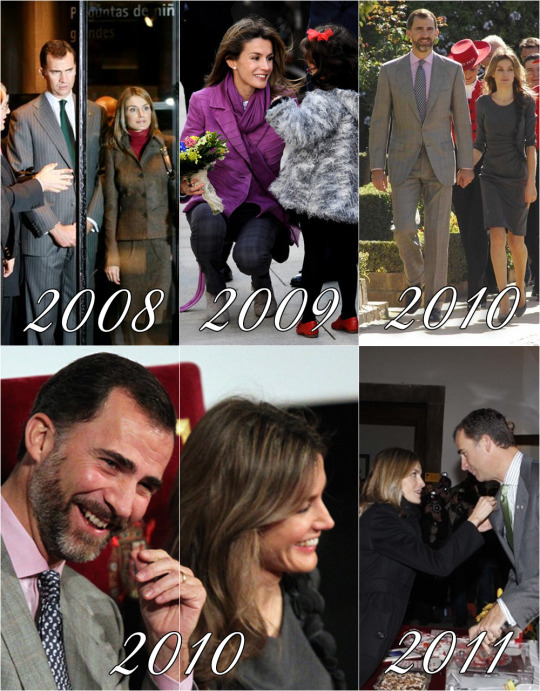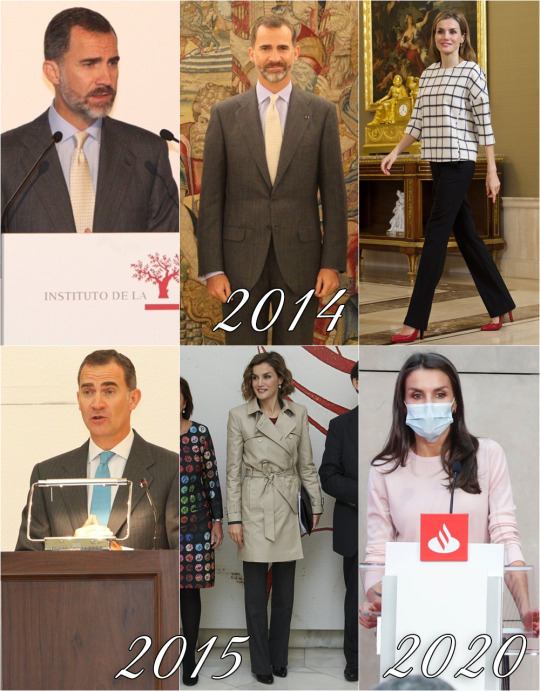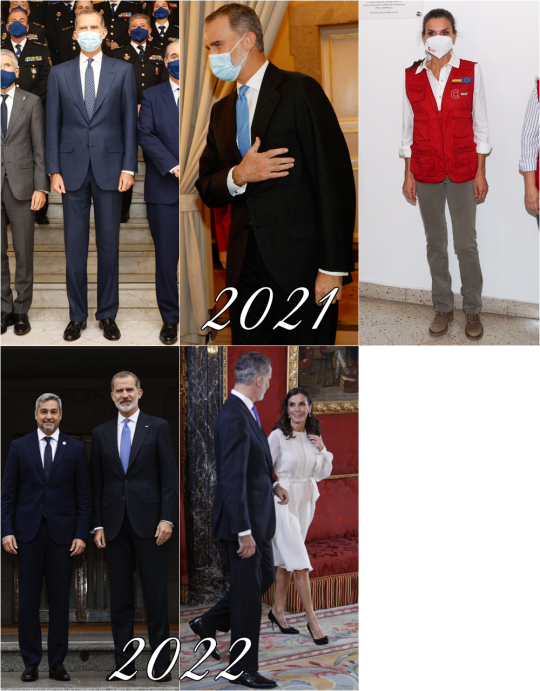#mstislav rostropovich
Explore tagged Tumblr posts
Text
youtube
Dmitri Shostakovich · Mstislav Rostropovich, Cello Sonata in D Minor, Op. 40: II. Allegro I Shostakovich plays Shostakovich
7 notes
·
View notes
Text


Soviet cellist Mstislav Rostropovich celebrating his 50th birthday with Grace and Rainier of Monaco at the Monte Carlo casino, March 9, 1977, Monaco.
5 notes
·
View notes
Text






Awesome Shostakovich recordings!
#music#classical music#modernism#Dmitri Shostakovich#Neeme Järvi#Yuri Temirkanov#Herbert von Karajan#Maxim Vengerov#Mstislav Rostropovich#Kronos Quartet#maryoliveoil
2 notes
·
View notes
Text

Mstislav Rostropovich
#suitdaddy#suiteddaddy#suit and tie#suited daddy#daddy#men in suits#silverfox#suitfetish#suit daddy#suited men#suitedmen#suitedman#suited man#buisness suit#suited grandpa#russian man#Russian men#Mstislav Rostropovich#Мстислав Ростропович
28 notes
·
View notes
Text
Happy birthday Mstislav Rostropovich
0 notes
Text
UNICEF Gala in Paris, 1978




Princess Grace at an evening gala in Paris, circa 1978.
#grace kelly#princess grace#unicef#paris#1978#simone veil#rostrop#mstislav rostropovich#grace levine#grace le vine
10 notes
·
View notes
Text
Opera on Youtube 4
L'Elisir d'Amore (The Elixir of Love)
Maggio Musicale Fiorentino, 1967 (Carlo Bergonzi, Renata Scotto; conducted by Gianandrea Gavazzeni; no subtitles)
Metropolitan Opera, 1981 (Luciano Pavarotti, Judith Blegen; conducted by Nicola Rescigno; Spanish subtitles) – Part I, Part II
Metropolitan Opera, 1991 (Luciano Pavarotti, Kathleen Battle; conducted by James Levine; English subtitles) – Part I, Part II
Vienna State Opera, 2005 (Rolando Villazón, Anna Netrebko; conducted by Alfred Eschwé; English subtitles)
Theatro da Paz, Brazil, 2013 (Atalla Ayan, Carmen Monarcha; conducted by Emiliano Patarra; Brazilian Portuguese subtitles)
Teatro Manoel, Malta, 2015 (Cliff Zammit Stevens, Shoushik Barsoumian; conducted by Philip Walsh; English subtitles)
Vienna State Opera, 2017 (Dmitry Korchak, Olga Peretyatko; conducted by Marco Armiliato; no subtitles) – Part I, Part II
Ópera de Bellas Artes, Mexico City, 2017 (Ramón Vargas, Olivia Gorra; conducted by Guido Maria Guida; Spanish subtitles)
Vienna State Opera, 2018 (Benjamin Bernheim, Andrea Carroll; conducted by Frédéric Chaslin; no subtitles)
San Francisco Opera, 2023 (Pene Pati, Slávka Zámečníková; conducted by Ramón Tebar; English subtitles)
Hänsel & Gretel
Vittorio Cottafavi studio film, 1957 (Fiorenza Cossotto, Jan Poleri; conducted by Nino Sanzogno; sung in Italian with Italian subtitles)
August Everding studio film, 1981 (Brigitte Fassbaender, Edita Gruberova; conducted by Georg Solti; English subtitles)
Leipzig Opera, 1981 (Annelott Damm, Steffi Ullmann; conducted by Horst Gurgel; no subtitles)
Julliard Opera Center, 1997 (Jennifer Marquette, Sari Gruber; conducted by Randall Behr; English subtitles)
Opera Australia, 1992 (Suzanne Johnston, Christine Douglas; conducted by Johannes Fritzsch; sung in English)
Vienna State Opera, 2015 (Daniel Sindram, Ileana Tonca; conducted by Christian Thielmann; English subtitles)
Pacific Northwest Opera, 2015 (Sylvia Szadovszki, Ksenia Popova; conducted by Clinton Smith; sung in English with English subtitles)
Scottish Opera, 2020 (Kitty Whately, Rhian Lois; conducted by David Parry; sung in English with English subtitles)
Eklund Opera Program, 2020 (Christine Lee, Anna Whiteway; conducted by Nicholas Carthy; sung in English with English subtitles)
Amarillo Opera, 2021 (Sarah Beckham-Turner, Patricia Westley; conducted by Carolyn Watson; English subtitles)
Turandot
Mario Lanfranchi studio film, 1958 (Lucilla Udovick, Franco Corelli; conducted by Fernando Previtali; English subtitles)
Vienna State Opera, 1983 (Eva Marton, José Carreras; conducted by Lorin Maazel; no subtitles)
Royal Opera House, Covent Garden, 1986 (Gwyneth Jones, Franco Bonisolli; conducted by Jacques Delacote; English subtitles)
Forbidden City, Beijing, 1998 (Giovanna Casolla, Sergej Larin; conducted by Zubin Mehta; no subtitles)
Teatro alla Scala; 2001 (Alessandra Marc, Nicola Martinucci; conducted by Georges Prêtre; French subtitles)
Gran Teatre del Liceu, 2009 (Anna Shafajinskaia, Fabio Armiliato; conducted by Giuliano Carella; English subtitles)
Chorégies d'Orange 2012 (Lise Lindstrom, Roberto Alagna; conducted by Michel Plasson; French subtitles)
Wichita Grand Opera, 2015 (Zvetelina Vassileva, Ricardo Tamura; conducted by Martin Mazik; no subtitles)
Teatro de Bellas Artes, Mexico City, 2017 (Gabriela Georgieva, Carlos Galván; conducted by Enrique Patrón de Rueda; Spanish subtitles)
Opera Hong Kong, 2018 (Oksana Dyka, Alfred Kim; conducted by Paolo Olmi; English subtitles)
Eugene Onegin
Prince Regent Theatre, Munich, 1965 (Hermann Prey, Ingeborg Bremert; conducted by Joseph Keilberth; sung in German; no subtitles)
Paris Opera, 1982 (Benjamin Luxon, Galina Vishnevskaya; conducted by Mstislav Rostropovich; French subtitles)
Kirov Opera, 1984 (Sergei Leiferkus, Tatiana Novikova; conducted by Yuri Temirkanov; English subtitles)
Chicago Lyric Opera, 1985 (Wolfgang Brendel, Mirella Freni; conducted by Bruno Bartoletti; Spanish subtitles)
Petr Weigl film, 1988 (Michal Docolomanský dubbed by Bernd Weikl, Magda Vásáryová dubbed by Teresa Kubiak; conducted by Georg Solti; English subtitles)
Festspielhaus Baden-Baden, 1998 (Vladimir Glushchak, Orla Boylan; conducted by Gennadi Rozhdestvensky; English subtitles) – Act I, Act II, Act III
Palau de les Arts Reina Sofia, Valencia, 2011 (Artur Rucinski, Kristine Opolais; conducted by Omer Meir Wellber; no subtitles) – Part I, Part II
Teatro Comunale di Bologna, 2014 (Artur Rucinski, Amanda Echalaz; conducted by Aziz Shokhakimov; English subtitles)
Mariinsky Theatre, 2015 (Andrei Bondarenko, Yekaterina Goncharova; conducted by Valery Gergiev; French subtitles)
Livermore Valley Opera, 2019 (Morgan Smith, Antonina Chehovska; conducted by Alex Katsman; English subtitles)
#opera#complete performances#youtube#l'elisir d'amore#the elixer of love#hänsel und gretel#hansel and gretel#turandot#eugene onegin#gaetano donizetti#engelbert humperdinck#giacomo puccini#pyotr ilyich tchaikovsky
14 notes
·
View notes
Text

Alexander Knaifel
Russian composer whose sparse musical landscapes create a spiritual ambience of meditative calm
Alexander Knaifel, who has died aged 80, did not set out to be a composer. As a student in the 1960s, he studied the cello with Mstislav Rostropovich until injury intervened. Then he redirected his energies towards composition, at a time when the Khrushchev thaw could accommodate the musical modernism of the Soviet Union’s second avant-garde period (the first having come in the years around the 1917 revolution).
But the cello retained a significant role in Knaifel’s output. Rostropovich went on to commission and premiere three religious works that reflected both Knaifel’s adoption of Russian Orthodox Christianity around 1970 and his conviction, which appealed to Rostropovich, that experience can be heightened by performers thinking – “silently intoning” – a text as they playe the music.
Chapter Eight – Canticum Canticorum (The Song of Songs, 1993), a work “for church, choirs and cello”, unfolds slowly over the course of an hour. With three a cappella choirs adopting a cross formation in Washington National Cathedral in the US, the premiere was recorded for the Teldec label and released under the title Make Me Drunk With Your Kisses (1995).
The Fiftieth Psalm (1995) is for solo cello. Psalm 50 in the Orthodox numbering is Psalm 51 in the west: Miserere/Have Mercy. With his concern for “playing as if singing”, Knaifel felt that “only Rostropovich could articulate this text”, and his recording of it was released on the ECM label in 2005.
Blazhenstva (1996) is a meditation on the Beatitudes, Jesus Christ’s sermon on the mount. Rostropovich’s last cello student, Ivan Monighetti, later recorded it with Knaifel’s wife, Tatiana Melentieva, as the soprano soloist with the State Hermitage Orchestra from St Petersburg for another ECM release.
That 2008 recording also features Monighetti playing a piece in the modernist style that preceded Knaifel’s more ethereal approach, his Lamento for Solo Cello (1967, revised 1986). Built upon serialist tone rows, and with a striking approach to timbre and performance techniques, it is also highly expressive.
From the same period came his Monody for Female Voice (1968), again written in a modernist style, with modal phrases juxtaposed with glissandi descending in quarter-tones and wide intervals. Premiered by Melentieva, it was written with her crystal-clear tone and extensive vocal range in mind.
Knaifel first made his mark with the opera The Canterville Ghost, given a semi-staged student production in 1966, at the end of his studies at the Leningrad Conservatory. Based upon the humorous ghost story by Oscar Wilde, it was taken up by the Kirov Orchestra under Alexander Gauk in Leningrad in 1974 and the BBC Symphony Orchestra under Gennady Rozhdestvensky in London in 1980. A 1990 recording with Michail Jurowski directing the Moscow Forum Theatre, reissued on Brilliant Classics in 2012, brings out the young composer’s confident delivery of musical humour and mastery of orchestration.
In Knaifel’s more ascetic and contemplative works, solo lines and single sustained pitches are spun out over long durations – sometimes over the course of two hours – almost to the point of stasis. In the more minimalist language of what he called his “quiet giants”, he was ahead, among Soviet composers, of either Giya Kancheli or Arvo Pärt, in presenting pared-down content that is rich in spiritual ambience. There is no obvious parallel to Knaifel’s music in the west, although it bears some similarity in style to that of the American composer Morton Feldman.
Of two large-scale works from the 1970s, Knaifel said: “In Jeanne, I discovered the number, in Nika, the word.” He reworked a Joan of Arc ballet into Jeanne, Passion for 13 Instrumental Groups (1978), a work of extreme asceticism drawing on the principle that the universe is built on numbers and proportions with rational and symbolic power, while Nika, 72 Fragments for 17 Performers on Bass Instruments (1974), was the first of his works to use unspoken texts.
Agnus Dei for Four Instrumentalists A Cappella (1985), with a characteristically paradoxical title, is powerful in impact given its sparse musical landscape and the sense of meditation that this creates. It utilises a wide range of literary examples, ranging from the liturgical to quotations from the diary of a young girl, Tanya Savicheva, who died during the siege of Leningrad.
These texts, printed in the score as well as in the audience’s programme notes, are never heard in performance, with the musicians being instructed to “think the text” as they play. Knaifel maintained that the word does not needed to be explicitly stated for the work’s spiritual intention to be understood.
His compositions of the 1990s and beyond increasingly displayed a religious aesthetic and an even more ascetic musical language. Texts both secular and sacred were present, but, in line with the Gnostic tradition, Knaifel asserted that “truth” must be hidden and revealed gradually to the listener in order for it to have validity.
This approach found its fullest and most original expression in In Air Clear and Unseen (1994), for texts by Fyodor Tyutchev, piano and string quartet, with its extremes of register, periods of silence, silent intonation, religious symbolism and virtuosic performance techniques. A recording by the pianist Oleg Malov and the Keller Quartet was released on ECM in 2002.
Knaifel’s opera Alice in Wonderland, premiered in Amsterdam in 2001 with a cast including the baritone Roderick Williams, has a libretto based upon Lewis Carroll’s narrative. But the text is rarely sung, instead being either mimed, or even in a few instances, coded visually, through coloured lights playing on a backdrop on stage.
Born in Tashkent, Uzbekistan, Alexander was the son of Russian-Jewish parents: his father, Aron Knaifel, a violinist, and his mother, Muza Shapiro, a music theory teacher, had been evacuated from Leningrad at the time of the siege. From the Leningrad Central Music School (1950-61) he went on to the Moscow Conservatory, where his cello studies under Rostropovich were ended by a nerve inflammation in his left hand. At the Leningrad Conservatory (1963-67) he studied composition with Boris Aparov, a student of Shostakovich.
In 1979, Knaifel was blacklisted by the Soviet authorities as one of the “Khrennikov Seven”, including Edison Denisov and Sofia Gubaidulina, following the premiere in Cologne of his improvised piece A Prima Vista (1972), attracting the ire of Tikhon Khrennikov, leader of the Union of Composers of the USSR.
Knaifel turned his attention to writing film scores, written in a more conventional idiom. There were 40 in all, including those written for his frequent collaborator, the Russian director Semyon Aranovich.
Working with the composer on preparing a number of written texts for publication led me to appreciate his childlike sense of wonder alongside his warmth and playful sense of humour. This sense of a child’s world was apparent in both the Alice opera and its predecessor, the surrealist song cycle A Silly Horse (1981), of which a recording by Melentieva and Malov was reissued on the Megadisc label in 1997.
Knaifel married Melentieva in 1965. She survives him, along with a daughter and a grandson.
🔔 Alexander Aronovich Knaifel, composer, born 28 November 1943; died 27 June 2024
Daily inspiration. Discover more photos at Just for Books…?
9 notes
·
View notes
Text
youtube
Alexander Borodin (1833–1887) - Various Songs
I. Shto ty rano, zaren'ka 00:00 II. Spyashchaya knyazhna 02:54 III. Pesnya tyomnovo lesa 06:33 IV. Morskaya tsar'yevna 08:28 V. Dlya beregov otchizny dal'noy 11:21
Galina Vishnevskaya -soprano & Mstislav Rostropovich -piano
5 notes
·
View notes
Photo

Marc Chagall The Cellist 1939
“My mother carried me for 10 months. I asked her ‘Mother, you had an extra month, why you didn’t make me a beautiful face?’ and mother told me, ‘My son, I was busy making your beautiful hands and heart.” Cellist Mstislav Rostropovich
75 notes
·
View notes
Text
Paul Klee on the violin

(English / Español / Italiano)
Quintet in the studio of the Heinrich Knirr School of Painting and Drawing in Munich, 1900. Paul Klee (far right) is photographed with his violin. Accompanying him (left to right) are Walther Siegrist (second violin), Fritz Stubenvollstrasse (viola), Franz Schmidt, a student of classical philology (first cello) and Julius Labba (second cello). This is the only photo of the artist playing an instrument preserved in the archive of the Zentrum Paul Klee in Berne.
They were about to play the String Quintet in C major D. 956, here played by the Melos Quartet with Mstislav Rostropovich: listen here
-----------------------------------------------------------------------------
Quinteto en el estudio de la Escuela de Pintura y Dibujo Heinrich Knirr de Múnich, 1900. Paul Klee (extremo derecho) es fotografiado con su violín. Le acompañan (de izquierda a derecha) Walther Siegrist (segundo violín), Fritz Stubenvollstrasse (viola), Franz Schmidt, estudiante de filología clásica (primer violonchelo) y Julius Labba (segundo violonchelo). Se trata de la única foto del artista tocando un instrumento conservada en el archivo del Zentrum Paul Klee de Berna.
Estaban a punto de tocar el Quinteto de cuerda en do mayor D. 956, aquí interpretado por el Cuarteto Melos con Mstislav Rostropovich: escucha aquí
-----------------------------------------------------------------------------
Quintetto nello studio della Scuola di pittura e disegno Heinrich Knirr a Monaco, 1900. Paul Klee (all'estrema destra) è fotografato con il violino. Lo accompagnano (da sinistra a destra) Walther Siegrist (secondo violino), Fritz Stubenvollstrasse (viola), Franz Schmidt, studente di filologia classica (primo violoncello) e Julius Labba (secondo violoncello). Questa è l'unica foto dell'artista che suona uno strumento conservata nell'archivio del Zentrum Paul Klee a Berna.
Si apprestavano a suonare il Quintetto per archi in do maggiore D. 956, qui interpretato dal Quartetto Melos con Mstislav Rostropovich: ascolta quì
Source: Laureto Rodoni on Facebook
2 notes
·
View notes
Text
From "A Year of Bach"
J.S. Bach, The Six Cello Suites (BWV 1007-1012), Mstislav Rostropovich, cello HT
Via Tyler Cowen at Marginal Revolution:
https://marginalrevolution.com/marginalrevolution/2024/03/tuesday-assorted-links-458.html…
5 notes
·
View notes
Text

Soviet cellist Mstislav Rostropovich celebrating his 50th birthday with Grace and Rainier of Monaco at the Monte Carlo casino, March 9, 1977, Monaco.
7 notes
·
View notes
Text
Famous Cellists Throughout History
If you go down the history, you will find countless cellists have left an unforgettable mark on the musical landscape. Their mastery and innovation have shaped the instrument's role in various genres and styles. Let's take you through the energies and contributions of some of the most celebrated cellists ever. Read on!
The Pioneers of the Cello in the Baroque Era
The Baroque era saw the dawn of the cello. It witnessed the rise of the as a separate instrument with its stand. Several groundbreaking cellists helped to develop its music and playing style. Take a look -
Antonio Vivaldi (1678-1741): Although Vivaldi was primarily famous as a violinist and composer, he composed considerable concertos for the cello. His compositions reflected the lyrical and virtuosic potential of the string. His works often feature innovative harmonies and rhythmic patterns that challenge the cellists with demanding technical passages.
Giovanni Battista Pergolesi (1703-1736): Pergolesi penned a handful of sonatas. Those were considered masterpieces of the Baroque era. His music is marked by its emotional depth and melodic beauty.
The Rise of the Cello Concerto in the Classical Era
During the Classical period, the cello's music and popularity rose significantly, especially in line with concertos. Several composers wrote influential works that made the string a famous solo instrument. So, if you own this instrument, make sure to take care of it and get it a cello insurance plan for holistic coverage. Now, let's move on to the top cellist in the Classical area.
Joseph Haydn (1732-1809): Haydn composed six cello concertos. Most importantly, each of his compositions showcased a different aspect of the gear's capabilities.
Wolfgang Amadeus Mozart (1756-1791): Mozart penned two cello concertos and both were considered masterpieces of the genre to date. His music is described as a blend of musical beauty, harmonic elegance, and rhythmic energy.
Luigi Boccherini (1743-1805): Boccherini, A.K.A., the Father of the Cello Concerto gave his prolific output and creative approach to the instrument.

The Cello's Golden Age in the Romantic Era
The Romantic era was a great time for the string. Composers wrote music that demonstrated how expressive the gear could be. Many famous cellists played during this time and left a big impact, including the following:
Johannes Brahms (1833-1897): Brahms wrote two cello sonatas and a cello concerto - both became a cornerstone of its repertoire. His music is known for its emotional depth, harmonic richness, and technical challenges.
Pablo Casals (1876-1973): Casals is considered one of the greatest cellists of all time. He was also the founder of the Casals Festival in Prades and France.
Mstislav Rostropovich (1927-2007): Rostropovich was another legendary cellist of the 20th century. He was known for his powerful tone and fearless approach to music.
Continuing the Legacy in the Modern Times
The cello is still a very important instrument today. Many talented cellists are continuing the work of the great cellists who came before them. Do you own the string or are planning to buy one? Do not forget to buy a comprehensive cello insurance policy as well!
Yo-Yo Ma: Ma is one of the most celebrated cellists of our time. He is known for his versatility, technical brilliance, and commitment to social causes. He has performed with countless orchestras and chamber ensembles, recorded numerous albums, and collaborated with musicians from various genres.
Jacqueline du Pré: Du Pré was a British cellist who rose to fame in the 1960s. Despite being diagnosed with multiple sclerosis at a young age, she continued to perform at the highest level until her untimely death in 1987.
Gautier Capuçon: Capuçon is a French cellist who has gained international recognition for his expressive playing and technical prowess.
These are just a few examples of the many talented cellists who have contributed to the instrument's rich history. Their virtuosity, innovation, and passion have inspired generations of musicians and continue to shape the future of the cello.
#cello#cellist#cello insurance#music#musicians#insurance#musical instruments insurance#music insurance company
3 notes
·
View notes
Photo




Felipe and Letizia retrospective: November 3rd
2003: Letizia Ortiz went back to her house at the neighbourhood of Valdebernardo two days after the announcement of her official engagement to Prince Felipe; Felipe formally presented his bride to be to the press at the gardens of la Zarzuela. They posed for pictures and gave a short interview. & Concert by Mstislav Rostropovich in tribute of Queen Sofia’s 65th birthday.
2005: Celebration of the 25th anniversary of the General Council of the Judiciary
2008: Opening of the New facilities of the Science Park, Interactive Museum of Andalusia & Inauguration of the new headquarters of the Official Chamber of Commerce, Industry and Navigation of Granada
2009: Visited Zamora (1, 2, 3)
2010: ‘Fine Arts Gold Medals 2010 Awards’ & 175th anniversary of the company Gonzalez Byass
2011: Opening of the 2011 Red Cross Fundraising Campaign
2014: Inauguration of the 17th National Congress of the Family Business; Lunch to the president of Colombia Juan Manuel Santos Calderón & Audiences at la Zarzuela
2015: Delivery of diplomas of embassy secretary to the 48th promotion of the diplomatic career in Madrid & First roundtable of the seminar “Spanish Cooperation 2030. Spain and the new sustainable development agenda” at the National Library in Madrid
2020: Closing ceremony of the 12th call for “Banco Santander Social Projects”
2021: Meeting with the Governing Board of the National Police; Meeting with the Board of Trustees of the Pro Real Academia Española Foundation & Cooperation visit to Paraguay - Day 1
2022: Meeting with the President of Paraguay, Mario Abdo Benítez & Lunch with the President of Paraguay, Mario Abdo Benítez, and First Lady Silvana López Moreira
F&L Through the Years: 1079/??
#King Felipe#Queen Letizia#King Felipe of Spain#Queen Letizia of Spain#King Felipe VI#King Felipe VI of Spain#F&L Through the Years#November3
7 notes
·
View notes
Text
I told myself I wasn't going to go overboard on Dvorak's birthday this year, but just in case there's someone out there who still hasn't heard Rostropovich play the Dvorak Cello Concerto, I couldn't let this opportunity pass.
5 notes
·
View notes